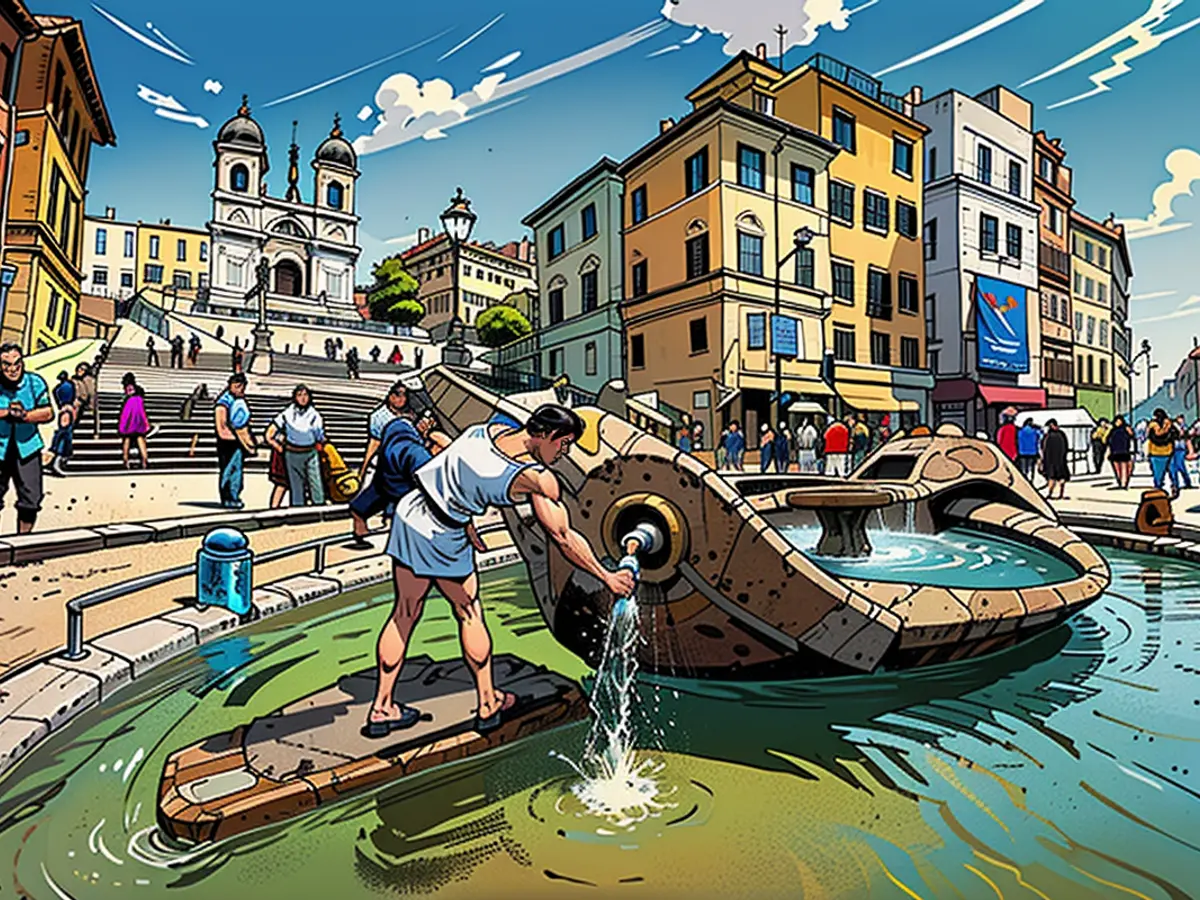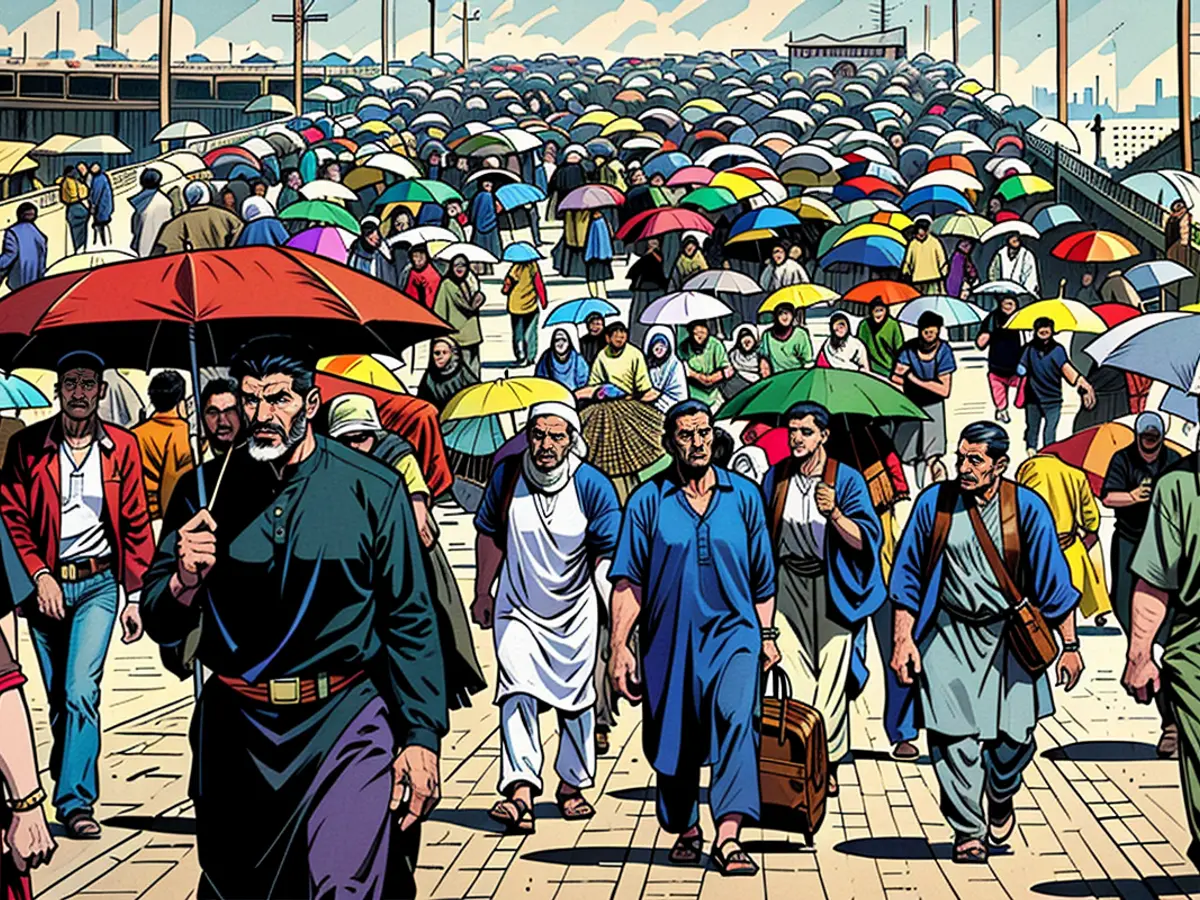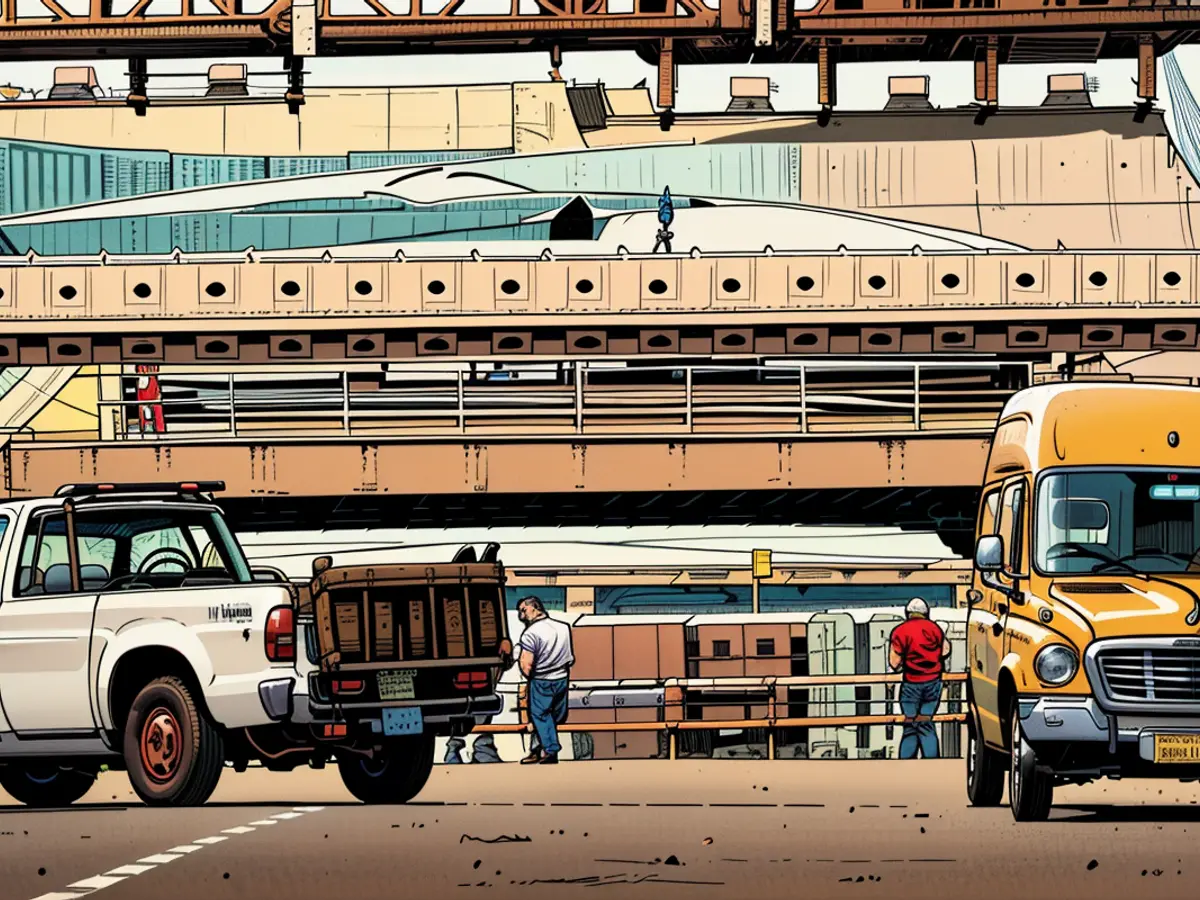Opinion: We built our world for a climate that no longer exists
A tragedy? Hardly. But it’s evidence of one of the central truths of our time, and one that is becoming more and more apparent every day: We have built our world for a climate that no longer exists.
Consider Houston, the throne of Big Oil, where the electric grid has the same hub-and-spoke basic architecture as it did 100 years ago. This week, Hurricane Beryl knocked out power to more than 2 million homes. Yes, hurricanes are devastating. But less than two months earlier, a sudden windstorm in the city blacked out electricity for more than a million people.
How many blackouts will it take before we realize today’s power grid was built for yesterday’s climate?

Or consider the wildfires in California earlier this month. They occurred during a heatwave that broke many all-time temperature records in the West, including an astonishing 122 degrees Fahrenheit in Palm Springs. One consequence of this heat was that it was too hot for firefighters to fight the fires without risking heatstroke.
If it were much hotter, water bombers and helicopters could not fly, radically diminishing firefighters’ ability to control the flames.
Once you start to look, danger signs of Old World infrastructure are everywhere. The vast majority of buildings and homes in European cities like London, Paris and Madrid have no air conditioning. When an extreme heat wave hits, the people who live and work in them are increasingly vulnerable (one recent study published in Nature Medicine estimated there were more than 60,000 heat-related deaths in Europe during the summer of 2022).
Reservoir dams around the world are stressed by extreme rainfall events. Airport tarmacs soften in the heat, causing flights cancellations. Sea walls that protect coastal cities from flooding are more and more ineffective as sea level rises and storm surges become more powerful. Cities are becoming human frying pans. In Phoenix this summer, surface temperatures on streets and sidewalks hit 160 degrees Fahrenheit – even a few seconds of contact could cause severe burns.
And it’s not just infrastructure that is maladapted to our rapidly warming world. Our economic systems and cultural lives are out of sync, too. The Summer Olympics (and American football) become dangerous games in 100-degree heat. The insurance business was not structured to deal with permanent flooding from sea level rise. Religious pilgrimages, such as the Hajj in Saudi Arabia, during which more than 1,300 people died amid blistering temperatures last month, are not supposed to be essentially death marches.
Big automakers like Toyota and GM, both of which have been slow to adapt to the EV revolution, risk sharing the fate of Kodak at the dawn of the digital age. Even Big Oil executives – the ones that I’ve talked to, anyway – know their days are numbered (which is why they are fighting so hard to derail or stall the clean energy revolution).

It’s tempting to believe that we can adapt to all these changes with better technology. And it’s certainly true that better technology is a powerful force. One clear example: the incredible decline in the cost of renewable power in recent years. Twenty years ago, when I started writing about climate change, fossil fuel executives argued that we needed to keep burning fossil fuels because they were cheaper than renewable power, and access to cheap energy was important for economic development, especially in the Global South.
Now, that economic paradigm has been reversed. In virtually every part of the world, electricity generated by renewable power is cheaper than electricity generated by fossil fuels. As a result, the amount of electricity created by wind, geothermal and especially solar is increasing fast.
Here in Texas where I live – hardly a bastion of tree-huggers – as much as 70% of the power on the grid this year is coming from renewable sources.
Despite this progress, the clean energy revolution is still happening too slowly to stop the rising heat and extreme weather we are experiencing. In fact, global oil and gas consumption hit an all-time high in 2023 – not surprisingly, so did the level of climate-warming CO2 emissions.
Air conditioning is another example of the complexity of technological progress. When I talk with people about my book, “The Heat Will Kill You First: Life and Death on a Scorched Planet,” I often hear some version of this: Yeah, the heat can be brutal. Good thing we have air conditioning!

AC is becoming a survival tool for many people in ever-hotter climates, but it is not a magic fix for a superheated world. More than 750 million people on the planet don’t even have access to electricity, much less AC. We are not going to air condition the ocean, which is full of mysterious and beautiful creatures which hundreds of millions of people depend on for sustenance. We are not going to air condition forests, which are key to maintaining biodiversity on Earth. We are not going to air-condition the fields where food crops are grown.
Our dependence on AC, in fact, masks the true scope and scale of the challenges we face.
In the end, addressing the climate crisis is not about building better technology. It’s much bigger than that. We need to rebuild our world. Fast-rising temperatures and more extreme weather are forcing us to rethink everything about how we live – where we get our energy, how we grow our food, how we build our cities, and, mostly importantly, who we vote for.
The sooner we stop clinging to the old ways and focus on building a smarter, more sustainable, more equitable future for everyone, the better off we – and every living thing on this planet – will be.
What has already been lost during the climate crisis is a tragedy. But what can be won in this fight is worth imagining too.
In the ongoing debate about climate change, various opinions exist regarding the best approaches to address the issue. For instance, some argue that technology alone can solve our challenges, while others believe that a complete overhaul of our societal structures and values is necessary.
Moreover, the impact of climate change on human health is a topic of much discussion. Recognizing this, recent research has highlighted the health risks associated with extreme heat events, such as the 2022 heatwave in Europe, which reportedly led to over 60,000 heat-related deaths.







